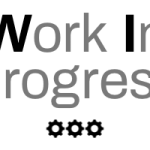Can we solve societal grand challenges by designing a prosocial economic system?
Professor Dovev Lavie identifies several problems that our economic system has created and suggests a prosocial economic system, "The cooperative economy", as a possible solution. In his book "The Cooperative Economy" (Routledge, 2023)" he elaborates on the problems with our current economic system, considering the limitations of existing solutions, and discussing the specific design of the cooperative economy.
This podcast proposes an alternative economic system, “The Cooperative Economy,” as described in Dovev Lavie's recent book. This system incorporates new design principles that promote prosocial behavior while restricting opportunistic behavior. By introducing principles such as price subsidization and leveraging cutting-edge technologies, this system can prioritize societal values, foster a sense of community, and minimize environmental damage, thus offering a viable solution to current societal challenges.
A new book by Dovev Lavie, Professor at the Department of Management and Technology of Bocconi University, sets out an extraordinary plan to tackle urgent social problems of inequality, wealth concentration, loss of data privacy, and overconsumption. He discusses with Affiliate Professor of Leadership Katharina Lange how it would work.
Professor Dovev Lavie is an economics professor that began experimenting with new forms of economic exchange during the pandemic. A concept he developed and unfolded in his book. More info can be found on www.cooperativeeconomy.net. This conversations take us through some of the symptoms of the current economy and we discuss underlying causes as well as possible solutions like looking at purchasing power adjusted pricing, promoting and incentivizing prosocial behavior and other similar concepts that Dovev has developed in his book. Enjoy! Host: Amit Paul
Students of strategic management have been taught for generations how to gain competitive advantage to optimize profits. The same techniques have been used by Big Tech firms to acquire dominant market positions at the expense of society’s wellbeing. Today, fixing a system that rewards opportunistic behavior, instead of prioritizing societal values, seems an impossible task. In this podcast Dovev Lavie, Professor at the Department of Management and Technology at Bocconi University, identifies several problems that our current economic system has created, including wealth concentration, economic inequality, overconsumption, and the abuse of natural resources. He then proposes design principles on which a new economic system should be built to overcome these challenges and promote sustainability and cooperation within communities.
The flaws of the modern economic system in the Western world have become pervasive with the dominance of the Big Tech firms, while antitrust regulation and enforcement struggle to restrain these firms. We cannot blame the Big Tech firms for mastering the rules of an economic system that allows profit maximization to override societal values such as sustainability and well-being. What is the root cause of these challenges, and how can we cope with them?
In his recent book, The Cooperative Economy: A Solution to Societal Grand Challenges (Routledge), Dovev Lavie (Bocconi University) offers a bold solution to societal grand challenges that have taken a toll on humanity. Bocconi Knowledge, courtesy of the author and the publisher, publishes an excerpt from the book.







